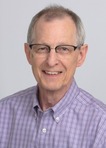Thomas Zinser's Blog, page 5
November 19, 2011
Adyashanti – Waking Up is Hard to Do
For whatever reason, I had not been aware of Adyashanti until today. On his website, you will find many writings, podcasts, and videos. I first saw a transcript of the interview that you can see below. I read a little bit and was impressed, and so clicked on the video link. I was even more impressed. I watched the entire interview in a couple of sittings. So, I want to share it with you. I believe he's talking truth.
Tom Z
November 7, 2011
The Role of Prayer in Healing
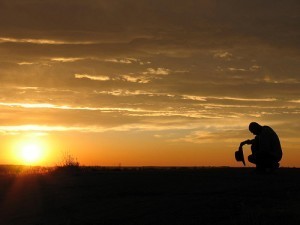 I received an email a few days ago. The author had read my book and was asking about prayer. Here's the letter and my response:
I received an email a few days ago. The author had read my book and was asking about prayer. Here's the letter and my response:
Dear Dr. Zinser,
I was so impressed with your book, well done. You mention the role that prayer played in your work, but you decided not to include it in your book. I wonder if you would be so kind and outline this aspect for me, as I'm particularly interested in the changes patients experience via prayer and the role it plays in such therapy.
I took some time to think about it, and this was my response:
As far as your question about prayer, I've been trying to find the words. From my point of view, it begins with the Light, (God, Creator, Divine, All That Is). As souls of Light, we are already a part of that Light, and at this soul level, we know we are one with the creator. As souls, discarnate or incarnate, the Light is our essence. Here on the physical plane, as I see it, prayer is when someone intentionally attunes him- or herself to this essence, and so to the Creator. It may be to ask for assistance, it may be in gratitude, it may be for comfort, or it may be to intentionally send Light/Love energy to another person, condition, or situation. I also believe prayer can be done by groups (whether members are physically present with each other or not) where each individual taps into this light and joins it with the others for purposes and intents shared by the group.
As a creative and self-organizing principle, the Light brings balance and harmony, healing and clarity, and knowledge and wisdom. In one sense, living in accord with the Light is living in prayer. In the context of healing, my client and myself, our higher selves, our spirit guides, the client's family and friends (when asked) are all part of the healing process and can help the person bring Light/Love energy into areas of pain and darkness.
I know this is a short answer, but I hope it speaks to your question.
Tom
Photo: Courtesy of Don Christner
October 28, 2011
Isabeau Esby – Direct Communication with Spirits
The story of Isabeau Esby below is not rare. It's a story of a young woman who made direct contact with a spirit and has continued those contacts ever since. This is not rare. There are many people who have reported direct contact with a spirit. The most frequent seems to be the contact by a loved one shortly after death, or even at the time of death. For one person it may be a couple experiences in a lifetime. For others, like Isabeau Esby, the direct contact with spirits is very frequent, and at times a daily occurrence.
It's like a talent. Not everybody has it, and for those who do have it, it's to varying degrees and levels. Some people work hard to develop their talent and others do not, or don't have the opportunity. But no one denies that there is such a thing as a talent.
When it comes to those like Ms. Esby, however, our culture denies these abilities because it doesn't acknowledge that spirits exists. So the logic of this science says that anyone claiming to be in contact with a spirit must be delusional because we already know that there are no such thing as spirits.
This story is just to remind us that real people are having real psychic experiences and we're not going to get anywhere by denying the implications of that.
Tom Z
Psychic fine-tunes her medium abilities
By Samantha Stephens
yorkweekly@seacoastonline.com
October 26, 2011 2:00 AM
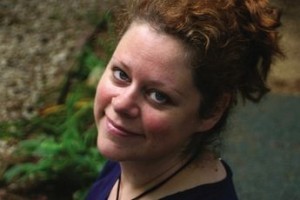 When Isabeau Esby's grandmother passed away, she was riddled with grief. Until, just an hour later, she said her grandmother paid her a visit.
When Isabeau Esby's grandmother passed away, she was riddled with grief. Until, just an hour later, she said her grandmother paid her a visit.
Standing in the middle of her living room, Esby recalled being terrified by seeing her grandmother's spirit.
"Out of pure desperation of wanting to talk to her again, I thought, 'Well I'll see if this is grief playing itself out or if this is a possibility,'" Esby recalled.
With the ability to channel her grandmother, Esby said she was happy to share a special connection with her even after death.
"Just when I thought I've got this inside thing when I can talk to my grandma whenever I want, more spirits started to show up. It was something I had to adjust to," she said.
Her grandmother's death occurred just over six years ago, and since then, Esby has fine-tuned her medium abilities.
"For a long time I thought I should do readings because I thought people who had this did that. I would be booked out months in advance and I got burned out. In the meantime, about two years after it started, I found myself in a position of helping spirits who have not fully completed their transition. That's the majority of what I do. It's very behind the scenes. A lot of people don't see what I do, but that's what I love to do with it," Esby said.
Andy Kitt, of Kitt Research Initiative, studies paranormal psychology and claims Esby is the real deal.
"We are doing our best to find out who is legitimate and have them come in and do stuff and find out who isn't and don't bring them," he said of the Initiative. "I can tell she's genuine because when she's channeling, she's looking behind you instead of directly at you. With some mediums you can tell they're frauds because they're looking right at you and whether they think they're genuine or a fraud, they're coming up with things off the top of their head. With Beau, it's like she's talking to someone over my shoulder. And that's pretty much what she's doing."
When Kitt was in need of a new vehicle, he said he enlisted the help of Esby as a friend. Fortunately for him, he said Esby's ability came into play and led him directly to a vehicle within his modest price range.
"There's no way she could have found that car unless she spent hours researching and looking for a car for me," Kitt said.
In addition to helping spirits cross over, Esby said she works with house clearings and detachments, often known as exorcisms.
"A house might be what pop culture calls 'haunted,' I go in and help those spirits move along. People might have an attachment, a spirit that hangs around and wrecks havoc in their lives," Esby explained.
And while many are tempted to call Esby's ability a "gift," she cautions against using that term.
"I stick with ability and I avoid the word 'gift' because I think 'gift' sets me apart from everyone who has it. I mean, everyone has it. It's about how much I fine-tune the ability. I don't see it as a gift bestowed onto me," Esby explained.
Although she continues to utilize her ability, Esby sometimes becomes frightened.
"If it's more than what I'm used to, it can get scary," she said. "My thing is that I'm kind of stubborn, I won't leave unless I helped or do what I came to do."
She said one of her most difficult cases was a house clearing in Gilmanton, N.H., with an uncrossed serial killer.
"I didn't know that it was a serial killer, I knew he was male and he showed me a lot of stuff about how he liked to drain blood from people and how he was in the medical field," Esby said.
But after the homeowner did her research, she phoned Esby and informed her that the information she provided during the clearing matched a profile of a serial killer who had lived in the area.
"That spirit was so strong he had affected the male in the house and he bragged about it. The spirit said, 'I sent him to the hospital,' so I turned to the man and I said, 'What is he talking about?'" Esby said. "He was really shaken up because a month earlier he had woken up and thought he was paralyzed and thought he had a stroke. Within an hour of being in the hospital, they said nothing is wrong and he walked out."
Although she helped the spirit cross, Esby recalled being shaken by the experience.
"I'm putting myself in a vulnerable position against something that's hurting living people," she said. "It turned out to be the 115th anniversary of his death, piecing together in kind of a spooky way, but I guess it was a good anniversary."
So what is it that Esby actually sees?
"I see, in general, if you look at heat coming off the road, that's how I see it. When it forms stronger I start to see features and stuff like that. Almost all communication is telepathic. A ghost doesn't have hands and brown curly hair. You see what they project," she explained.
Similarly, Esby said she'll see images and need to translate them before it makes sense.
"Over the years you build up a dictionary. Like, "Goldilocks and the Three Bears" probably means a woman has been married twice and working on her third," Esby said. "There's a lot of symbolism, when I see a spirit I can typically get height, basic features. I can hear words as they say them, too."
And while many mediums work for the living and grieving, Esby does things a little differently.
"My rule of thumb is that I work for the dead, I don't work for the living," she said. "If somebody who's deceased came up to me and said, 'I want you to say this,' I often do if something's coming through that's important. If people want one for performance-type reasons, I usually say no."
As for skeptics, Esby said she was agnostic and had no relationship with spirituality prior to seeing her grandmother's spirit.
"I was one so I completely respect their position. I won't try to budge them, I won't try to change their position," she said. "A skeptic is someone who has simply not had an experience enough to change their point of view."
Although Esby said having intuition and medium is not genetic, her sons have their own abilities.
"I have two boys, one is very medium and one is very psychic. The psychic is a very hard kid to raise, it's hard to get him a Christmas present," Esby said.
But neither will probably follow their mom.
"They're not really interested in it, I don't think it's a path they'll go down but they've been in an environment so their personal intuition was able to open up," Esby said.
Esby wants to take the "pop" out of pop culture and continue to help stuck spirits.
"My hope is that people will start to recognize their ancestors and that ghosts are people, too. I don't want them to be scared. I'd like to bring awareness to the public," she said. "My future with this, I want to do more clearances and help as many people be not stuck as possible because if a grandfather passes away and gets stuck and doesn't complete his transition, he's not in a powerful position to help his grandchildren."
For better or worse, through skepticism and acceptance, Esby said her life has been infinitely improved by her ability.
"I don't think I ever truly understood bliss until I lived like this," she said. "When you're involved with spirituality so strongly and you walk a strong spiritual path, things that are amazing are 10 times more amazing and you open yourself up to things that you never would have."
For information about Isabeau Esby, visit www.isabeauesby.com.
Go & Do
At 7 p.m. Friday, Oct. 28, join A. J. Kitt, founder of the Seacoast Paranormal Research Group and the Kitt Research Initiative, and Isabeau Esby, internationally known psychic medium, as they present "Ghosts, Souls, Spirits, and Guides" at the York Public Library. They will discuss the history, the research, and the realities of paranormal phenomena, and what possibilities may lurk in any home, business, or graveyard.
October 6, 2011
2012 — What Edgar Cayce Would Say
A friend sent me the transcript of the following interview with Kevin Todeschi, executive director and CEO of Edgar Cayce's Association for Research and Enlightenment. Below is the video. It's a short but excellent statement, I think, on the meaning of 2012 and the kind of change it may signify. Based on his understanding of Cayce's readings, Mr. Todeschi emphasizes that we are talking about a significant global change, but one driven by a change in consciousness and not necessarily global disaster or catastrophe. You can find the transcript here.
September 14, 2011
Soul-Centered Healing: A Book Review
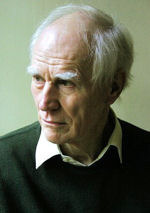
Alan Sanderson
Dr. Alan Sanderson is a London psychiatrist and president of the Spirit Release Foundation. After receiving an announcement on the release of Soul-Centered Healing, Dr. Sanderson contacted me, said he was excited about the book, and wanted to review it for their organization. I was familiar with Dr. Sanderson's work in the fields of hypnotherapy and spirit releasement, so I looked forward to his review of the book as well as his assessment of the work. I knew that his experience and clinical perspective would give an added depth.
Coming from someone who knows the territory, it has been gratifying to read Alan's review. It says to me that the book in some essential way hits close to its mark. Here is the start of the review followed by a link to the entire review.
Tom Z
The Spiritual Mechanics of Mind
SOUL-CENTERED HEALING by Tom Zinser
reviewed by Alan Sanderson
http://soulcenteredhealing.net/Site%20Pages/The%20Book.html
Soul-Centered Healing is an extremely important book. It shows the way, as never before, to a working understanding of the spiritual mechanics of mind. It does this clearly and directly, and it tells in detail, how advice from a channelled spirit guide, repeatedly tested in the consulting room, was used to resolve complex psychological problems. With this publication, Thomas Zinser takes a giant stride, towards the new paradigm for which so many are longing. I believe Soul-Centered Healing is worthy to rank with De Motu Cordis and The Principia as a beacon in the history of profound (and useful!) ideas.
 Thomas Zinser had no thoughts of soul when, in 1983, he resigned from his post as staff psychologist at a private mental hospital to set up in psychotherapeutic practice. In this enthralling, beautifully written book, Zinser describes his Odessey. It begins with his early experiences working with multiple personality disorder and concludes, 25 years later, with the final homecoming, as a confident, many-faceted therapist, with a conviction in the primacy of spirit in the human physical experience. To his homecoming Zinser brings a carefully-woven tapestry, with a picture of coherence and power, such as no psychologist has previously provided. It is a soul tapestry and it carries great implications, not only for psychotherapy and the understanding of personality, but for the spiritual dynamics of the cosmos.
Thomas Zinser had no thoughts of soul when, in 1983, he resigned from his post as staff psychologist at a private mental hospital to set up in psychotherapeutic practice. In this enthralling, beautifully written book, Zinser describes his Odessey. It begins with his early experiences working with multiple personality disorder and concludes, 25 years later, with the final homecoming, as a confident, many-faceted therapist, with a conviction in the primacy of spirit in the human physical experience. To his homecoming Zinser brings a carefully-woven tapestry, with a picture of coherence and power, such as no psychologist has previously provided. It is a soul tapestry and it carries great implications, not only for psychotherapy and the understanding of personality, but for the spiritual dynamics of the cosmos.
How did it happen? I almost put, "By Divine intervention." Surely it was not by chance. There could have been no book without Gerod, the genie of the story.
Read the entire review here.
August 24, 2011
Paranormal Phenomena: Facing the Unknown
 Paranormal phenomena such as communication with spirits, telepathy, or out-of-body travel contradict what our empirical science says is true. I concluded in the last essay that these contradictions—and they all add up to a big contradiction—are at the core of the denial of the paranormal. If these phenomena are real, if there are other dimensions of reality and being, then the materialist framework collapses. I argued that the denial of the paranormal is a defense triggered by the anxiety and fear of this collapse.
Paranormal phenomena such as communication with spirits, telepathy, or out-of-body travel contradict what our empirical science says is true. I concluded in the last essay that these contradictions—and they all add up to a big contradiction—are at the core of the denial of the paranormal. If these phenomena are real, if there are other dimensions of reality and being, then the materialist framework collapses. I argued that the denial of the paranormal is a defense triggered by the anxiety and fear of this collapse.
This defense is most obvious in people like the Amazing Randi. (James Randi is the world-renowned debunker of paranormal phenomena.) These are not skeptics. These are people who have already decided before you ever talk to them that paranormal realities don't exist. When I see Amazing Randi on TV, I have to ask myself: what would happen to his world were he to have a direct and undeniable experience of the paranormal?
I believe it would shatter his world and put him in shock—psychological shock. After some time to reflect, I think we would hear that he has either rationalized it away or denied to himself that it ever happened, or he would tell us he has experienced a conversion. How one responds to this shock depends on the person, the circumstances, and the phenomena involved.
Amazing Randi is the extreme. It is total denial; a complete shut off of other dimensions of reality. I don't know what percentage of people in our Western culture hold this extreme position. It could be substantial. In our day-to-day world, though, I suspect most people take the "maybe" position. They fudge on it. "Maybe there is something to it. Maybe there is an afterlife. Maybe ghosts are real."
Within the strict materialist framework, however, there is no fudging allowed. At this level, those in the maybe position join Amazing Randi. When push comes to shove, they too are in the same all-or-none position as Randi. Either these other dimensions exist and we need to account for them, or they don't and it's all nonsense. Depending on your answer, it leads to two very different worlds.
I wouldn't argue with someone like James Randi. It's like talking to someone who shuts his eyes and crams his fingers in his ears. He has way too much at stake. Whether it's his public persona, psychological identity, commercial interests, or ego needs, I don't know. If he acknowledges the paranormal realities, though, there will be upheaval for him at all levels.
I believe the fear of this revolutionary upheaval underlies the denial of the paranormal in our culture, both at the individual and collective levels.
If you do find yourself in discussion with someone who categorically denies the paranormal realities, ask yourself whether the person can hypothetically take the position of 'what if it were true.' Can the person intellectually step outside their box? Can he genuinely assume the possibility that these other dimensions are real and then discuss the logical implications? If not, there won't really be a discussion.
It's important to know that just by talking about your experience or paranormal phenomena in general, you force the strict materialist (at least unconsciously) into a paradoxical position where the only way out, in the end, is a revolutionary shift in consciousness. In the meantime, denial is a stop-gap measure.
If you are challenged by the materialist to offer proof, remember, they are demanding that you prove it within their framework and basic assumptions. In that case, they cannot be a fair judge of your experience, its validity, and its possible implications for your life. They cannot be a fair judge of paranormal realities in general. This is also true at the collective level where social pressure and institutions enforce the denial and keep the subject of paranormal phenomena taboo.
The point I would make is this: for those who know or believe they possess certain psychic abilities, are in contact with other beings or dimensions, or are aware of subtle energies, etc., it is important to know that your experience is valid. Even though you may lack the framework to fully explain or understand your experience, it takes nothing away from its validity.
Photo: Courtesy of Rob
August 3, 2011
Lifting the Veil: Fear of the Paranormal
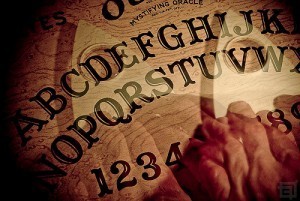 As a hypnotherapist, I have worked with psychic and spirit phenomena for nearly thirty years. I have also read hundreds of books and reports and first-hand accounts by people involving a whole range of paranormal phenomena and experiences. I waited for many years for the scientific community to study the evidence and acknowledge the high probability that other dimensions of reality exist beyond our senses and ego-consciousness. That moment still hasn't arrived.
As a hypnotherapist, I have worked with psychic and spirit phenomena for nearly thirty years. I have also read hundreds of books and reports and first-hand accounts by people involving a whole range of paranormal phenomena and experiences. I waited for many years for the scientific community to study the evidence and acknowledge the high probability that other dimensions of reality exist beyond our senses and ego-consciousness. That moment still hasn't arrived.
The evidence for the existence of these other dimensions is overwhelming. From my point of view, I don't see how anyone could honestly study the evidence and conclude otherwise. Yet, they do. No matter how convincing the evidence, paranormal phenomena and events are still dismissed by the scientific community as though there's nothing to them; like they didn't really happen; or it's all somehow an illusion. I've watched this denial happen more times than I can remember. So many times, in fact, that it was the denial itself that began to interest me.
Something powerful was happening here that so many rational, intelligent individuals would deny what the evidence was telling them. It's like they are all seeing the emperor's new clothes, and no one dares yell out and break the spell. The spell we live under is materialism, the belief that matter is the ground of all reality. It's a belief that science can eventually break everything down into its tiniest pieces. This includes everything mental as well: visions, dreams, thoughts, memories… All is to be reduced in the end to neurons, cells, and synapses. Nothing's real unless you can touch it and test it.
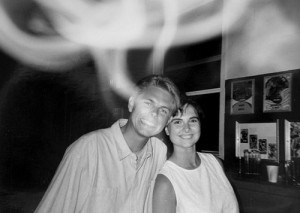 Paranormal phenomena, if real, would certainly break the spell. Communication from a deceased loved one, for example, would break the spell. So too would precognitions that accurately predict the future, or memories of different lifetimes, or the power of prayer. Any of them, if true, would dispel the idea that matter is the only thing in play here.
Paranormal phenomena, if real, would certainly break the spell. Communication from a deceased loved one, for example, would break the spell. So too would precognitions that accurately predict the future, or memories of different lifetimes, or the power of prayer. Any of them, if true, would dispel the idea that matter is the only thing in play here.
These phenomena contradict our laws of matter and space-time. They contradict what the materialist says is true. If realms of discarnate beings do exist, and if some of them, under certain conditions, make direct contact with humans, then the materialists' framework collapses. If these phenomena are real, the ground will disappear beneath their feet. It cannot account for such phenomena, and the same is true for so many paranormal phenomena. They cannot be made to fit.
I would argue that the denial of paranormal realities by science and by our culture in general is a defense against these fundamental contradictions and the threat of collapse that they imply. I would also argue that this denial is operating on several levels, each of which needs to be addressed on its own terms.
In the next essay, I'll discuss these different levels of defense and what drives the denial of the paranormal.
Photo of Ouija board, courtesy of: FOYTOGRAPHY.COM
Photo of couple, courtesy of: Jelly Watson
July 26, 2011
Thandie Newton: The Essence at the Heart of Many Selves
This talk by the actor Thandie Newton was just released by Ted.com. It's an inspiring story of a bi-racial woman who struggled to define herself and in the process discovered her essence. It's what I call soul. She talks about connecting to her essence in her art — her dancing and her acting. It's where she could let it be free and express itself so powerfully. She talks about her unfree selves: trying to fit in, trying to be what others wanted or expected. She was trying to create a "self" and it didn't work until she connected with her essence. She's telling her own soul story, and telling us that we each have our own. It's an engaging story, and she tells it well.
Tom Z
July 19, 2011
Talking about Soul
 The following essay by Nicholas Schmidt is from my archives. It resonates with me just as strongly today as it did several years ago. I don't agree with every statement, but there's a lot more agreement than not. The essay offers a basic language and perspective for thinking about ourselves as souls. It is certainly a challenge to the ego-centered perspective that dominates our Western culture. Nicholas also has a website with a wealth of material on metaphysics and the whole spectrum of nonordinary phenomena. You can find it here: http://www.fromthestars.com/
The following essay by Nicholas Schmidt is from my archives. It resonates with me just as strongly today as it did several years ago. I don't agree with every statement, but there's a lot more agreement than not. The essay offers a basic language and perspective for thinking about ourselves as souls. It is certainly a challenge to the ego-centered perspective that dominates our Western culture. Nicholas also has a website with a wealth of material on metaphysics and the whole spectrum of nonordinary phenomena. You can find it here: http://www.fromthestars.com/
Tom Z
What is a Soul?
"First of all, a soul is not something you have.
It is what you are… Now: The soul is not a finished product"Seth Speaks
~ Channeled by Jane Roberts
Have you ever wondered about your soul? What it is, why it was created, what it might be doing now, what its purpose is, and what it will be doing for eternity?
As I now understand it, before the material world (universe) was created all that existed was the incomprehensible mind of All That Is. In this state, God knew all there was to know, but could not experience or feel it. The reason was simple. In the Absolute, there are no opposites to compare things to, just the purest love, joy and bliss imaginable.
There is a big difference between having knowledge about something and experiencing and feeling that same thing. For example, one can know about joy, but only if there is sadness to compare it to. One can also know about love, but experiencing and feeling it is something quite different.
Without opposites in the Absolute, we could not compare or relate to anything, nor could we have emotions. One cannot experience and feel hot unless there is cold, health unless there is sickness, joy unless there is sorrow, love unless there is hatred, forgiveness unless there is anger, compassion unless there is bitterness, maleness unless there is femaleness, and so on. These kinds of opposites do not exist in the mind of God.
God recognized this dilemma and decided to solve it in two ways: create us (souls) and then create a physical universe in which all that existed had an opposite.
As extensions of our Source, we would then enter the universe and be able to experience and feel for ourselves and for All That Is. Another way to say this is that when we smell a rose, God smells a rose. When we experience love, so does God. The relationship is that intimate. The entire experience allows God and us to learn more about ourselves and, in the process, both of us become grander versions of who we are.
Although your soul exists in a realm of higher vibration, it is constantly connected to you. It has its own consciousness and awareness, part of which extends into your reality and becomes the source of your consciousness. It also has feelings, is very much alive and it is continuously expressing itself.
Your soul also thinks, possesses a vast repository of knowledge, is curious, makes choices, sends projections of itself into different realities simultaneously, is creative beyond belief, and is highly responsive.
Your soul also has infinite potential, never loses its certainty that it is a part or fragment of God, remains intact as you pass from lifetime to lifetime, inspires your poetry, is the part of you that laughs and cries, communicates with you through feelings and, most importantly, knows it is an intimate part of All That Is.
Within all of God's creations, there is nothing that is neither more sacred nor highly valued than a single soul, of which you are a very important part.
There is one book that is my all-time favorite: "Conversations with God" Book 1, by Neale Donald Walsch. In it God has a lot to say about the soul.
Here are some excerpts and some insights for you to think about. See if it has the right feel and makes some sense for you…
God speaking…
The soul – your soul – knows all there is to know at all times.
There's nothing hidden to it, nothing unknown. Yet knowing is not enough. The soul seeks to experience.
It is your soul's greatest desire to turn its grandest concept about itself into its greatest experience.
Your soul is the sum total of every feeling you have ever had (created). Your awareness of some of these is called your memory. When you have a memory, you are said to re-member. That is, to put back together. To reassemble the parts.
When you reassemble all the parts of you, you will have re-membered Who You Really Are.
The soul is very clear that its purpose is evolution. That is its sole purpose… and its soul purpose.
The first thing you might do is to get clear about what the soul is after. What the soul is after is… the highest feeling of love you can imagine. This is the soul's desire. This is its purpose.
The soul is after the feeling. Not the knowledge but the feeling. It already has the knowledge.
The highest feeling is the experience of unity with All That Is.
This is the great return to Truth for which the soul yearns. This is the feeling of perfect love.
For the soul to experience perfect love, it must experience every human feeling.
Walsch's Question: You mean that my soul is creating all of my experience, including not only the things I am doing, but the things that are happening to me?
God speaking…
Let us say that the soul leads you to the right and perfect opportunities for you to experience exactly what you had planned to experience. What you actually experience is up to you. It could be what you planned to experience, or it could be something else, depending upon what you choose.
The function of the soul is to indicate its desire, not impose it. The function of the mind is to choose from its alternatives. The function of the body is to act out that choice. When body, mind and soul create together, in harmony and unity, God is made flesh.
The purpose of the human soul is to experience all of it… so that it can be all of it.
Every feeling you've ever had resides in your soul. Your soul is the sum total of all your feelings.
The job of the soul, of course, is to cause us to choose the grandeur… to select the best of Who You Are… without condemning that which you do not select.
This is a big task, taking many lifetimes… your soul seeks the highest feeling. It seeks to experience – to be – perfect love.
It is perfect love – and it knows this. Yet it wishes to do more than know it. It wishes to be it (love) in its experience.
The soul has come to the body, and the body to life, for the purpose of evolution. You are evolving, you are becoming. And you are using your relationship with everything to decide what you are becoming. This is the job you came here to do.
Doing is the function of the body. Being is the function of the soul.
Your soul doesn't care what you do for a living… and when your life is over neither will you. Your soul cares only about what you are being while you are doing what-ever you are doing.
Walsch's Question: What is the soul seeking to be?
God speaking…
Me
Walsch's Question: You?
God speaking…
Yes, Me. Your soul is me and it knows it. What it is doing, is trying to experience that.
Right now, in this moment, your soul has again created opportunity for you to be, do and have what it takes to know Who You Really Are.
Your soul has brought you to the words you are reading right now – as it has brought you to words of wisdom and truth before.
What will you do now? What will you choose to be?
As mentioned, your soul is a part of God and, as such, is incredibly powerful. Ancient mystical wisdom and newly channeled information share the same theme about one of the soul's unique abilities: The power to fragment itself and lead many existences, in different dimensions, at the same time. You are one of your soul's fragments.
Dr. Eugene Jussek, a psychiatrist, published a book called, Reaching for the Oversoul. He describes how he learned about soul fragmentation while talking to the spiritual teacher of a patient he was regressing when delving into the patient's past lives. Here is what the teacher had to say…
Dr. Jussek: If a single soul is composed of different aspects (fragments), could not these aspects separate and inhabit different bodies on this plane at the same time?
"Teacher": Yes, as we have said before, if you would look upon yourself this evening you would see part of the whole. The encompassing wholeness, the complete soul, once spiritual evolution on this planet has taken place, comes to be by the joining of its dissected (fragmented) parts. Each such part being an individual entity in itself which also goes forth to learn and grow.
One part of soul, with its own individual personality, can reach a level of spiritual evolution far exceeding that which its counterpart is able to reach. One might be a very spiritual being while the other might be embedded in the worldly sphere (planet).
The evolved part might then leave and continue its evolutionary process in other spheres of learning. In time, through communicating with each other while in transitory state, and, during times of stillness, each soul learns where the other resides, and the God force within one can speak to the God force in the other.
Only when all soul parts have mastered their difficult tasks can the soul complete its mission on this planet, and go on to other levels of learning. Let us just say: totally different ways of life and rates of growth may be experienced by counterparts of the same soul, yet ultimately the soul will be united.
Although not mentioned specifically by the teacher, the concept of twin souls and soul mates is suggested within his explanations. He describes soul mates as being different souls. Counterparts of the same soul can be taken to mean a number of male or female fragments originating within the same soul. You are one of your soul's counterparts.
When one of the soul fragments is of the male energy, and the other fragment is of the female energy, and both vibrate at the same frequency, then that specific pair would be twin souls. This is explained in more detail in the soul mate andtwin soul section of this web site.
Dr. Jussek: Are there ways to recognize counterparts of one's soul? Surely it must be easy to be misled by emotion. Is there a certain technique?
"Teacher": As an individual achieves a certain level of development, it becomes possible that a counterpart (twin) be brought into its life pattern on this plane. Recognition would take place, though, yet on a spirit and soul level. It would be subconscious contact with much love and understanding between the individuals involved.
Dr. Jussek: Would you distinguish please, between the counterpart (twin) of one's soul, and a soulmate?
"Teacher": Certainly. Soulmates are not parts of one's own soul. Souls who have traveled through many, many periods of time have gone through similar circumstances in the life experience and have become very, very close are soulmates.
Dr. Jussek: So, you say that parts of the same soul will join together one day after they have worked out all their karma – how long will that take?
"Teacher": Countless lifetimes are necessary for this, and much depends upon the swiftness of spiritual evolution within each part of the soul before it can be unified. At one time, there might be twelve parts of your soul all experiencing living, learning. Ultimately these forms of your soul are brought together in total balance.
Information about the soul really touches a very deep part of me. I hope it has made you think and wonder a bit about who you really are and how you are intimately connected to your soul in a most sacred way. It's a wise thing to do because that relationship will go on for eternity.
Finally, there is a lot of excitement among people of all ages today as they consider the extraordinary concepts of soul mates and twin souls. These kinds of cosmic relationships can be very powerful and fulfilling when looked at from the level of soul.
I often wonder how many of us who dream about and yearn for soul mate or twin soul relationships know something about our own souls. After all, how can we have these kinds of sacred partnerships without an understanding of our soul and what it is up to during its profound, cosmic journey?
Photo: Courtesy of capsicina
July 4, 2011
Spiritual But Not Religious
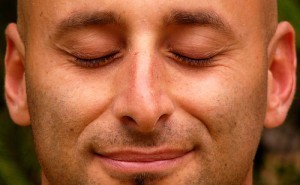 This short essay by Philip Goldberg offers some encouraging news. He says that underneath all the political brouhaha by the fundamentalist religions in recent years, there is a subtler, larger movement occurring in our culture. He says the fastest growing category of American religion, especially among young adults, is "spiritual but not religious."
This short essay by Philip Goldberg offers some encouraging news. He says that underneath all the political brouhaha by the fundamentalist religions in recent years, there is a subtler, larger movement occurring in our culture. He says the fastest growing category of American religion, especially among young adults, is "spiritual but not religious."
Tom Z
America the Mystical: Oh Beautiful for Spacious Minds
Philip Goldberg - Interfaith Minister, author of 'American Veda: How Indian Spirituality Changed the West'
When contemplating the history of religion in America from a certain perspective (say, the perspective of Bill Maher, Sam Harris or Christopher Hitchens) it would be easy to crack up over its absurdities, sneer at its defiance of logic and science, or fume over its hypocrisies and authoritarian dangers. All true enough, sadly. But there is another strain of American spirituality, one that is more attuned to the enlightened thinking of the Founders and the freedom we celebrate on Independence Day.
Fundamentalists, Christian supremacists and biblical literalists have made so much noise in the past few decades that they would appear to be in the ascendancy. In truth, quieter, subtler and more pervasive forces have given the nation a religious makeover. If you look at surveys from reputable pollsters like Gallup and Pew, you can see it gathering strength over time, especially since the baby boomer generation came of age and started searching for meaning outside the borders of both conventional religion and conventional secularism. Those studies point to these trends:
Independence: To a greater extent than ever, people make their own choices and think of spirituality in individual terms rather than as a matter of membership in a particular organization or tradition.
Direct experience: Inner spiritual awareness and personal transformation have become more important; adherence to a doctrinal belief system has become less appealing.
Pluralism: Respect for traditions other than one's own has never been higher. Belief that one's own religion is the best one for everybody has never been lower.
Fluidity: Eclectic seeking and spiritual experimentation has risen; exclusivity has declined.
Intellectual freedom: Fewer and fewer people read scripture as literal truth or believe that religious dogma trumps the findings of science and history.
Oneness: The separation of human and divine, or of the individual and the cosmic, is increasingly rejected in favor of an incontrovertible connectedness.
A skeptic might ask how these assertions square with surveys showing that more than 90 percent of Americans believe in God. Those polls seldom ask the obvious follow-up question: What do you mean by God? In fact, most Americans see God — if they use the G word at all, and fewer and fewer do — as a nonpersonal energy or universal intelligence, more of an It than a He, and more like the Force of Star Wars than the human-like deity of medieval paintings and fundamentalist sermons.
If this seems more like Eastern spirituality than conventional Western religion, it is no coincidence. The core teachings of Hinduism and Buddhism have helped shape our spiritual landscape ever since the first English texts on Asian religion found their way to folks like John Adams, Thomas Jefferson, Ralph Waldo Emerson and Henry David Thoreau. That our founding thinkers — and countless open-minded citizens after them — saw something of value in those teachings says as much about the true spirit of America as it does about the East. In researching my own book on the subject, I was struck by the remarkable compatibility of ancient yogic insights and the American values of individual autonomy, freedom of inquiry and pragmatism. That's why Swami Vivekananda, the first Indian guru to impact the West, wrote a poem called "To the Fourth of July." (That he died on that date — as didSwami Prabhavananda, who mentored Aldous Huxley, Christopher Isherwood and other influence makers — is fitting to mention on this occasion.)
Americans are romantics and idealists who abhor stagnation and never settle very long for complacent certainties. At the same time, we are practical, evidence-based problem-solvers. Those qualities apply to matters of the spirit as well as to worldly affairs. It may not always seem that way amid the desperate raging of fanatics, science deniers and theocratic thumpers of Bibles and Qurans, but those values eventually prevail.
No fact summarizes my argument more succinctly than this: The fastest growing category of American religion, particularly among young adults, is "spiritual but not religious." That the land of the free gave birth to such a designation makes perfect sense, and those who identify with it should not be dismissed as frivolous or noncommittal, as certain critics have contended. They are, for the most part, serious questers who are not inclined to take on faith either religious dogma or facile secularism. They are mystics and idealists who also happen to be rational, pragmatic and independent. What could be more American?
Source: http://www.huffingtonpost.com/philip-goldberg/america-the-mystical-oh-b_b_886422.html
Photo: Courtesy of Premasagar Rose


